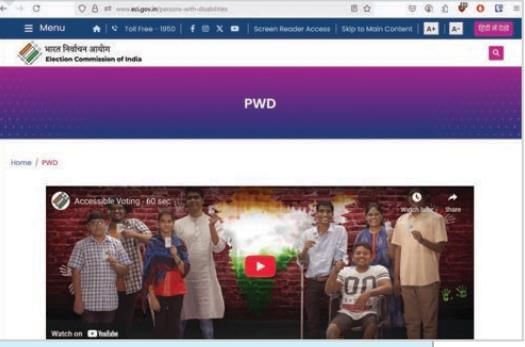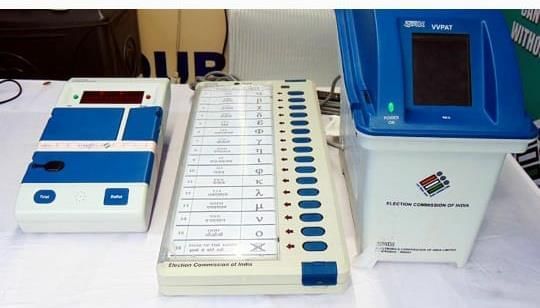Let's Explore: Universal Franchise and India’s Electoral System | Social Science Class 8 - New NCERT PDF Download
Page 118: LET’S EXPLORE
India changed the minimum age for voting from 21 to 18 in 1988. Discuss whether this was a good move.
- I think lowering the voting age to 18 was a great move because young people like us are more aware of issues like education and jobs, and we can vote for leaders who care about our future. It gives us a voice earlier, making democracy stronger.
- In my group, we'd discuss how 18-year-olds are adults who can drive or join the army, so why not vote? But some might say younger people aren't mature enough, yet I feel it encourages responsibility and gets more people involved!
Page 120: LET’S EXPLORE
In 1947, our literacy rate was about 14 per cent, only about 8 per cent among women. Some argued that the right to vote should be given only to literate people. Discuss in your group why the Constitution makers may have decided on universal franchise from the time of Independence itself.
- The Constitution makers chose universal franchise because they believed everyone deserves equality, even if not literate, as voting is a basic right for all citizens. In 1947, limiting it to literate people would exclude most poor or rural folks, which isn't fair.
- We'd discuss in group how this built faith in democracy, like trusting the common person, and helped unite India after Independence. It also showed India's ancient values of inclusion, making sure no one was left out!
There are several reasons why universal franchise is so important. A few are illustrated in the mindmap below. Can you add some more?
- The mindmap already shows reasons like equality, everyone's voice matters, and holding leaders accountable. I'd add:
- 1) It builds unity by letting all groups, like farmers and city people, join in decisions, making society stronger.
- 2) It teaches responsibility, as voting makes us think about our country's problems and choose wisely for a better future. These reasons show why universal franchise is key for a fair India!
Page 121: LET’S EXPLORE
Q1. Discuss in groups — What role do such measures play in a democracy? Do you know of anyone who benefited from these improved accessibility measures? How might they increase voter participation in your neighbourhood? How can technology assist?
- These measures, like home voting or wheelchairs, make democracy fair by including everyone, showing no one is left out. In my group, we'd say they build trust and equality.
- I know my grandma's friend with a disability voted from home in 2024—it made her feel valued! In our neighbourhood, more people might vote if it's easier, raising turnout from low areas. Technology like apps for wheelchairs or braille cards helps by making voting simple and quick!
Q2. If you have access to the internet, visit the ECI website. Read and identify the various interventions that the ECI has taken to facilitate voting by people with disabilities.
From what I learned, the ECI helps people with disabilities (PwDs) vote easily with these steps:
- Special voter guides and education programs to teach PwDs about voting.
- Home voting for PwDs with 40% or more disability, so they don't need to go to polling stations.
- Wheelchairs, ramps, and priority entry at polling booths to make access easy.
- Braille on ballot papers and EVMs, plus audio guides for blind voters.
- Apps and helplines to request help, like sign language interpreters for deaf people.
- Special enrollment forms (Form 6) where PwDs can note their needs.
- Training for election staff to assist PwDs kindly and fairly.
- 'Accessible Elections' theme in 2018 to focus on inclusion, with state committees for PwDs.
- Voter IDs with disability info and customized awareness campaigns.
Page 123: LET’S EXPLORE
About 34 per cent of eligible voters did not exercise their right to vote in the 2024 elections. Why do you think this is so? What are some challenges people face in exercising their rights? Design and conduct a short survey among adults in your family and neighbourhood to answer these questions. Analyse the data and write a report with suggestions on how it may be possible to ensure everyone votes.
- I think many didn't vote because of long lines, work, or feeling votes don't matter. Challenges include bad weather, no transport, or confusion about IDs.
- For my survey, I'd ask 10 adults: "Did you vote in 2024? Why or why not? What stopped you?" Results might show 6 voted, 4 didn't due to busy schedules.
- Report: Low turnout from apathy; suggestions: More awareness ads, easier home voting, and school programs to teach voting importance so everyone joins!
Page 125: LET’S EXPLORE
1. What are the most important aspects of the election process in this caselet?
Ans: Important aspects: Fair campaigning, secret voting, and counting with witnesses to ensure honesty.
2. Why was it important to have a secret ballot?
Ans: Secret ballot is key so no one feels pressured or scared to choose freely.
3. What considerations might the students have had while exercising their choice?
Ans: Students might consider who helps the class most, like Gurmat's peer coaching idea.
4. Do you think the students have any responsibility after Gurmat was elected as the class rep? If yes, what are they?
Ans: Yes, after election, students should support Gurmat, join events, and give feedback.
5. What was the role that Ms. Usha played? Why was it important?
Ans: Ms. Usha was the Election Officer, organizing rules and fairness—important to avoid fights!
6. Why was it important for Ms. Usha to organise a braille ballot paper for Neha?
Ans: Braille for Neha ensures inclusion, as she's blind and deserves equal rights.
7. What would happen if many students in the class chose not to mark a preference?
Ans: If many didn't mark, the winner might have few votes, making the rep seem weak and class less united.
Page 128: LET’S EXPLORE
Identify teachers in your school or vicinity who may have performed election duty. Invite them to your class to share their experiences.
- I'd find teachers like my science teacher who did election duty last year.
- We'd invite her to class to talk about setting up booths, checking IDs, and handling crowds.
- She might share fun stories like helping old voters or staying up late counting— it shows how hard work makes elections fair!
Page 129: LET’S EXPLORE
India’s electronic voting machines (EVMs) and Voter Verifiable Paper Audit Trail (VVPAT) systems have been used in countries like Namibia and Bhutan with support from the ECI. Other countries have also studied this technology and have received training from India to adopt it in their countries. 
VVPAT is a system that produces a physical paper record, allowing voters to verify that their electronic votes were cast correctly. This paper trail provides a backup for verification and recounting purposes in case of disputes or failures of the electronic system.
- This shows India's EVMs are trusted worldwide because they're safe and fast.
- VVPAT lets us check our vote on paper, building trust.
- I'd discuss in class how sharing this tech helps other countries have fair elections, like India trained Bhutan. It's cool that our system prevents mistakes and fights!
Page 131: LET’S EXPLORE
Here are a few types of complaints that the ECI handles. Why do you think these might be violations of the code of conduct?
- These are violations because:
1) Giving sarees or gifts buys votes, unfair to poor people.
2) Abusive language creates hate, not peaceful elections.
3) Government officials campaigning misuses power.
4) Cash in cars is bribery, against equal chances. The code keeps elections clean so voters choose freely!
Page 132: LET’S EXPLORE
When is the next election in the region where you are located? Is it to the state, urban local body or panchayat?
- Assuming I'm in Delhi, the next is Delhi Assembly for state MLAs.
- If in your area, check online or news—could be panchayat for villages or urban bodies like municipal polls. It's important to know so we can prepare and vote wisely!
Page 134: LET’S EXPLORE
Who are the MP and MLA / MLAs of the constituency you are located in?
Which party does each of them belong to?
What are the concerns of the MP and MLA, respectively?
- In my example from Delhi's New Delhi constituency, MP is Bansuri Swaraj (BJP), focusing on national issues like jobs and pollution.
- MLA is Pravesh Verma (BJP), handling state concerns like water, schools, and roads. Yours might differ—ask family or search to learn their parties and local problems they fix!
Page 136: THINK ABOUT IT
Why do you think the above group of people is not involved in electing the President of India? Why are the common people not involved in the election of the president?
- Nominated members aren't involved because they're chosen by others, not elected by people, so only directly elected reps vote to keep it democratic.
- Common people don't vote directly as the President represents the whole nation, so MPs and MLAs (our chosen leaders) elect them indirectly. This ensures balance between center and states, like a team decision!
|
31 videos|128 docs|7 tests
|
FAQs on Let's Explore: Universal Franchise and India’s Electoral System - Social Science Class 8 - New NCERT
| 1. What is universal franchise and how is it implemented in India? |  |
| 2. What are the key features of India’s electoral system? |  |
| 3. How does the Election Commission of India ensure free and fair elections? |  |
| 4. What is the significance of the right to vote in a democracy? |  |
| 5. What challenges does India face in its electoral system? |  |
















